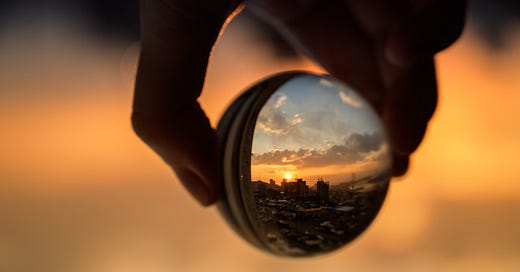I recently posted a reply to an article on LinkedIn.com. The response was about perception and how people see what they see by a photo, video, or article taken out of context. In our modern world, everything is edited. The videos we watch. The articles we read. The photos we see. It's propaganda by everyone. The purest meaning of propaganda is "Information, especially of a biased or misleading nature, used to promote or publicize a particular political cause or point of view."
Whether we like it or not, we are all influenced by someone's ideas. A president, group, corporation, or individual uses propaganda to sway us into believing their cause is right or someone else's cause is wrong.
It's that simple.
Over the last decade, propaganda and Social Media have distorted the reality of whether or not large groups of people believe. It's a hyperbole of misinformation in politics, media, and everyday life. In 2025, especially since the election of 2024, there's so much tension in everyone's daily life. Anger, mistrust, and malaise are spreading worldwide. The discussions and debates that need to happen are far away. The question is, why?
I'll propose a reason (certainly not the reason.) We lack clear dialogue and communication. Everything we see is in two sentences or less. Emojis are used instead of writing the letters in the words we use. Growing up, I was an avid reader; I enjoyed magazines or books that spoke to me. One of the first series of books I read was the entire writings of Sherlock Holmes. Of course, these stories were written in a different time when allocution meant writing stories with length (even the short stories.) As I began reading more, my taste changed, and I noticed the sentence structure getting smaller and easier to read.
The nomenclature was the shorter sentence when I started writing (I have since I was ten) as an adult. Write and get to the point. Truthfully, it worked, but I felt something was missing. I call it building the truth. Make the story alive in someone's mind. That meant writing cleaner but not removing essential details. Of course, newspapers and the media have to get to the point. (That's what they do.) I wanted to be a reporter and found out I like telling stories.
Today, everything from storytelling to news is so short that the person reading it can't form an overall opinion. Quick spins cascade us from rival writers. A photo is used to make their point, the truth. I'm okay with that. It's fair, and in the United States, freedom of speech and the media is baked in from the beginning. The problem in the 21st century is the rise of social media and the 24-hour news cycle. Although news is entertainment today, it does not report facts but entertains the masses.
Truth.
How to fix it? There's no way to correct it only through more extended discourse. By listening and comprehending what facts are known. (Notice: I didn't state the facts; I just said what is known.) There is a difference. So, how to be clear and heard? Well, I thought about this, and in my corporate life, there was an idea called "an elevator speech." You have two minutes to tell a person about your company. It works. Try it. Strike up a conversation. Say, "Hello. Can I ask you a question? What type of food do you like? Let me tell you about a place that I tried."Can you keep the conversation going for longer than a minute? If you can, then you are on the right path.
Two minutes for dialogue, two minutes for a calm discussion. Asking someone their name and smiling disarms people who don't know you. You become a smiling person with no agenda. Names are important, and smiling is very disarming. Being you is the only person you know; getting to know someone else is illuminating. Exchanging ideas without tension allows people to communicate.
Don't jump to conclusions. It's hard. Don't get mad. It's easy. If something goes wrong, smile and walk away.
It's that easy.
Coming Soon Part Two: Social Media and the News





